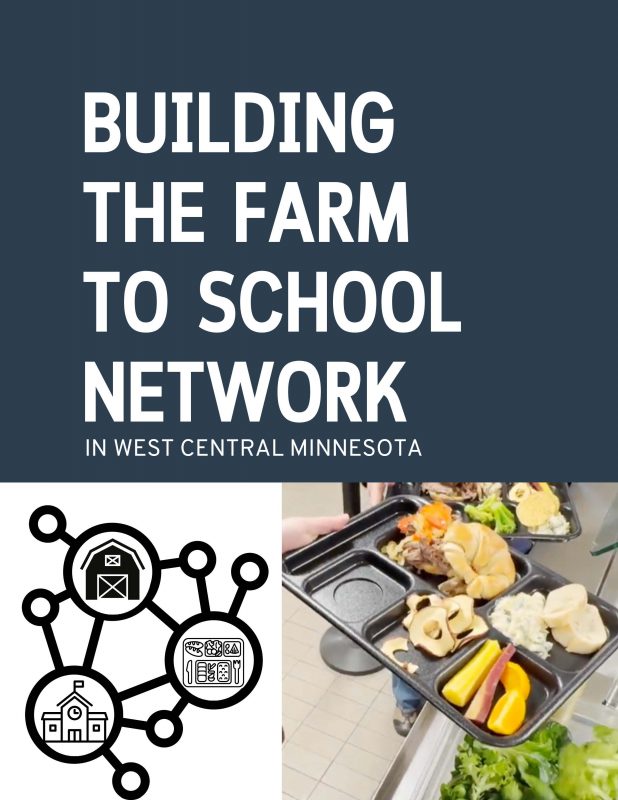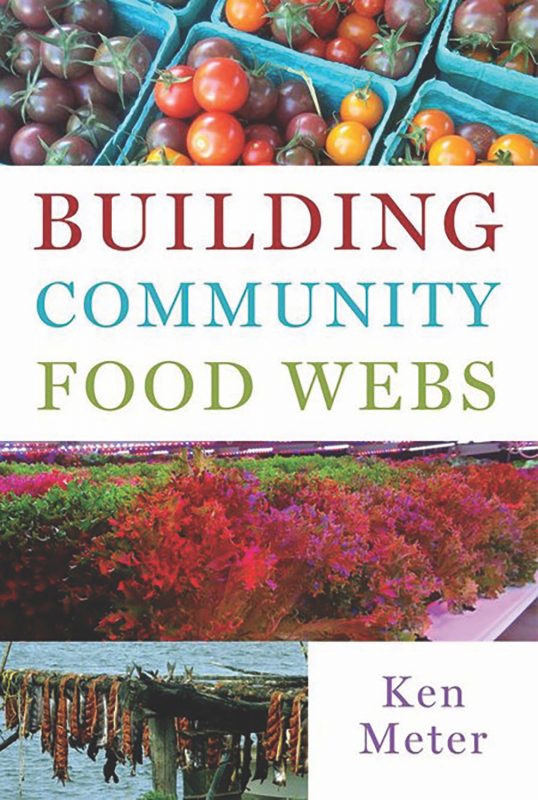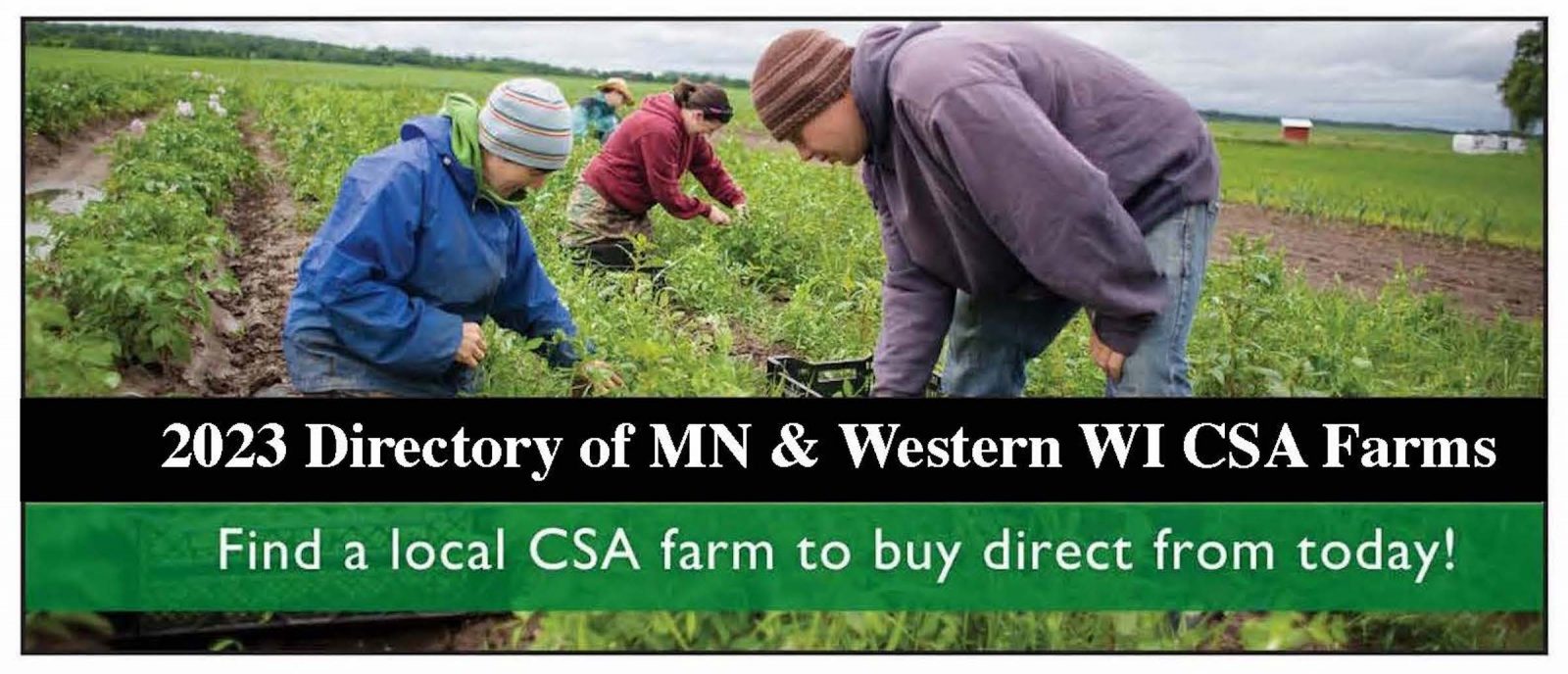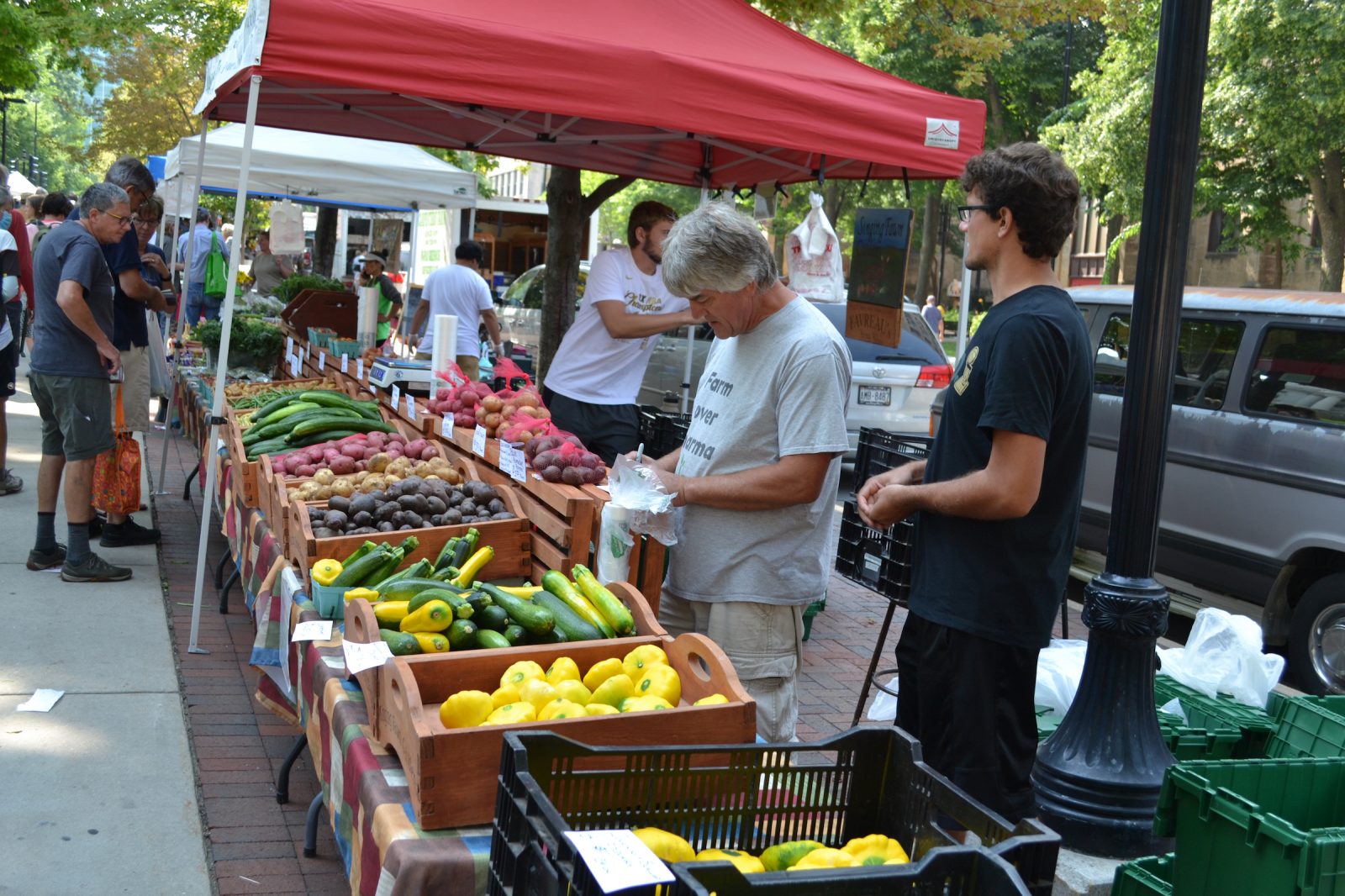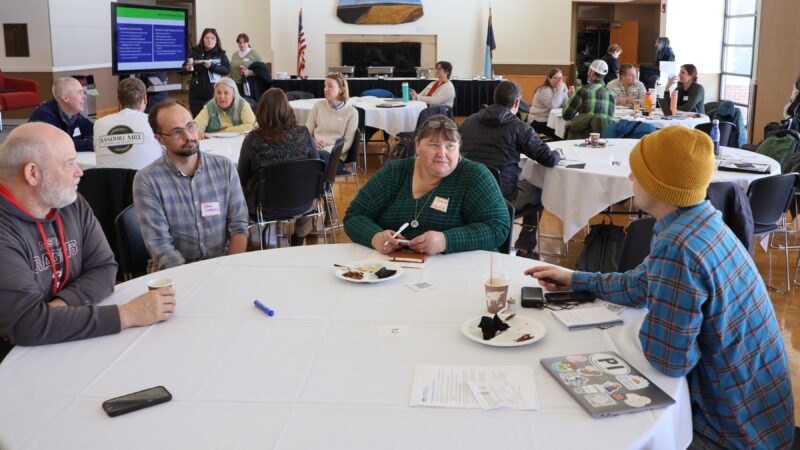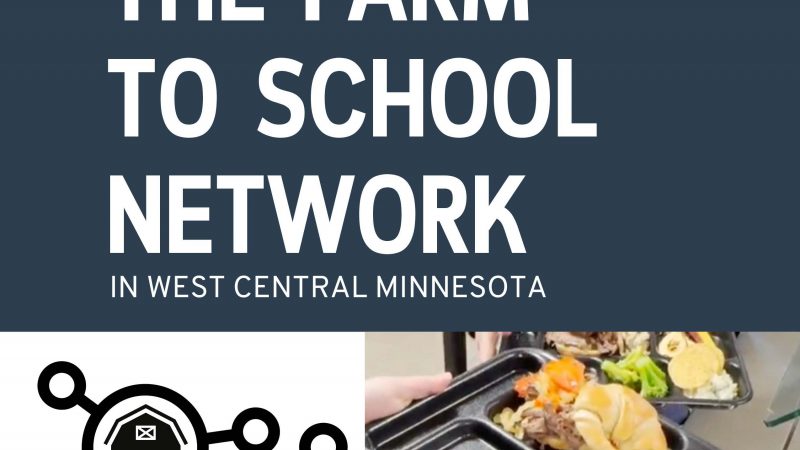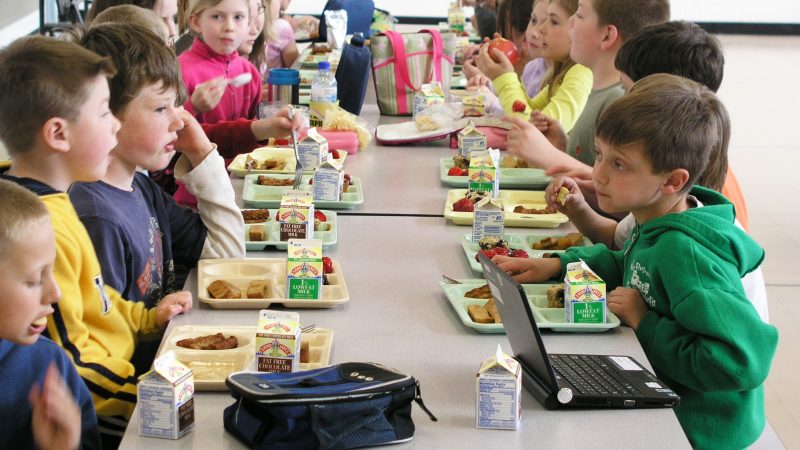The U.S. agricultural system is good at churning out record harvests of commodities that are sent all over the world or turned into industrial products like fuel, but this extractive system often does not benefit farmers or the communities they live in, and has produced environmental and human health costs that we all pay for. When we build robust community-based food systems, we are creating strong, resilient, and interconnected communities. Community-based food systems, or “community food webs,” as food systems analyst Ken Meter calls them, are collective hubs of food production, processing, distribution, and consumption that strengthen regional environmental, economic, and social health.
Building community-based food systems extends beyond food procurement and processing; this work strives to build connection and community among all food system stakeholders — from food chain workers and consumers to farmers and our public officials who make decisions that dictate the contours of our region’s economy and landscape. The Land Stewardship Project is committed to helping rural communities build food systems that are by people and for people.
Want to Get Involved?
Want to stay connected with the latest community-based food systems work? Sign up for specialized updates!
